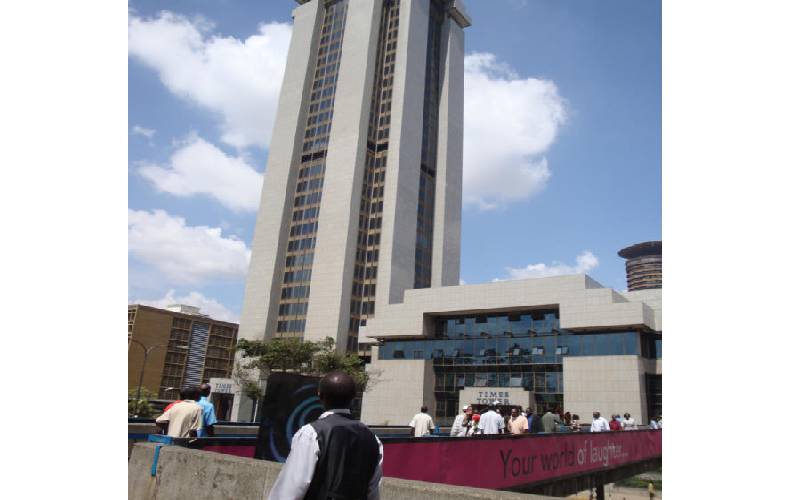Times Tower building that houses Kenya Revenue Authority. The Kenya Revenue Authority (KRA) has set a new record, collecting Sh1.01 trillion in taxes in the last seven months to January, according to data published by the National Treasury.
This means that the taxman raised Sh143.3 billion in the first month of 2022, down from Sh200 billion collected in the previous month.
December is generally a good harvest period for the taxman as this is when most companies close their books. Data from the Exchequer contained in yesterday’s Kenya Gazette shows that KRA collected Sh1.01 trillion between July 2021 and January 2022 compared to Sh779.3 billion in the same period of 2021.
This points to economic recovery after a tumultuous period in which the business environment was clouded by the negative effects of the Covid-19 pandemic.
Treasury Principal Secretary Julius Muia told the Departmental Committee on Finance and National Planning that the increased revenue collection was due to an “improved business environment following full the reopening of the economy.”
KRA has also aggressively gone after tax cheats, which has seen it unlock a lot of revenue through out-of-court settlements.
In the new mini-budget, KRA’s allocation has been revised upwards by Sh3.7 billion to Sh28.9 billion, pointing to enhanced tax collection strategies, with the taxman targeting the informal sector and high net worth individuals.
KRA has also been prowling social media in what is aimed at profiling the lifestyle of individuals to see whether it tallies with their tax payments.
However, for every Sh100 that KRA collected in taxes, Sh51 was used to repay debts.
Recurrent expenditure, which includes operation and maintenance costs, travel, marketing and advertising and training, was Sh617.8 billion against a target of Sh1.1 trillion.
Development spending stood at Sh163.3 billion against a target of Sh389.2 billion, with President Uhuru Kenyatta keen to complete his legacy projects, including roads and ports ahead of the August General Election.Counties received a total of Sh171.8 billion from the Treasury as part of their shareable revenue with the national government. Counties are expected to receive Sh370 billion from the Exchequer by the end of June.In the seven months to January, State borrowing stood at Sh580.2 billion, with a big chunk of the loans coming from local investors.Although Treasury has indicated that it will soon issue another Eurobond – a dollar-denominated sovereign bond – it has to be done in a way that does not offend the International Monetary Fund (IMF), which […]
